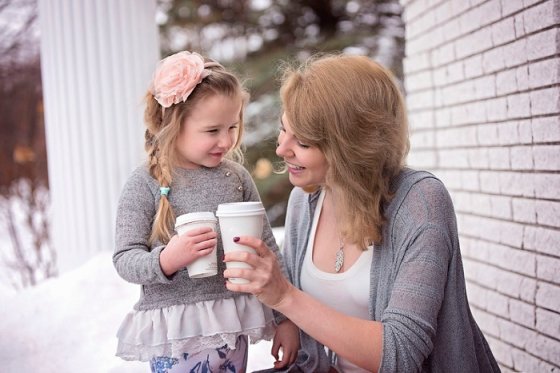Self-esteem is important at all stages of life and directly affects well-being, quality of life, life satisfaction, and physical health. Let’s discuss ways older adults can boost their self-esteem, starting with this post, which outlines activities that increase self-esteem.
Health issues, changes to routines, and isolation are a few reasons why some older adults may be experiencing decreased self-esteem. According to research, this decline isn’t due to the aging process but rather a person’s ability to adapt to life events, including physical and cognitive decline.
Thus, older adults need to build a toolbox of sociocognitive strategies to increase self-esteem, which is essential for improving an individual’s quality of life.
Fortunately, many activities can help boost self-esteem and improve overall well-being. Here are 13 self-esteem-boosting activities for older adults.

Table of Contents
Look good to feel good.
Practicing good hygiene will increase an older adult’s outward appearance, which directly translates to feeling good on the inside. Encouraging older adults to follow a hygiene routine and dress nicely can positively impact their self-image.
Meanwhile, some older adults may consider getting botox or cosmetic treatments to improve their physical appearance and boost their self-esteem. Thus, it is vital to assess their individual preferences when exploring options for enhancing their physical appearance.
Write in a gratitude journal.
Each day, older adults should take a few minutes to write down what they are grateful for. This helps to shift their focus from the negative to the positive, which is beneficial for improving mood and boosting self-esteem.
Volunteer.
Volunteering at organizations like a local food bank, hospital, animal shelter, or community garden can be a great way to give back to the community and feel a sense of satisfaction.
Suggest to your loved one to pursue a volunteer opportunity that they are passionate about—this will encourage them to commit to an organization and make a positive impact on the lives of others while boosting their self-esteem.
Reading.
Reading can be beneficial to older adults for so many reasons. Not only can reading make anyone happier and increase their self-esteem, according to research, it also has many other positive health implications.
For example, regular reading can improve brain function, reduce stress, combat anxiety, boost happiness and life satisfaction, increase empathy, and help older adults to sleep better.
Learning a new hobby.
Learning a new skill or hobby can help your loved one feel accomplished. This will help to create greater feelings of happiness and contentment. Focusing on hobbies can also shift negative emotions to positive ones during day-to-day activities.
From taking up painting, knitting, or gardening, there are many possibilities to be tailored to an older person’s interests. Encourage your loved one to find something they enjoy and can stick with.
Learn something new.
Just like learning a new hobby can help increase an older adult’s self-esteem, so can learning a new skill. Learning something new can also increase feelings of accomplishment, whether it is a new language, skill, or recipe.
Learning a new skill also has the benefit of increasing creativity and meeting new friends with similar interests. Building communities is imperative for building a life of fulfillment.
Practice mindfulness.
Mindfulness is maintaining awareness of our thoughts, feelings, body, and surrounding environment. Furthermore, it is the intentional action of acceptance of self.
Practicing mindfulness can help an older adult stay present in the moment and reduce stress and anxiety, whether it is the practice of meditation, yoga, or simply taking a few deep breaths, incorporating mindfulness into a daily routine.
Get active.
Being physically active while we age is incredibly important for the body and boosts self-esteem.
According to Public Health, older adults should participate in at least two and a half hours of moderate to vigorous aerobic activity each week. Sessions can be spread out in increments of 10 minutes or more. It is also recommended to include muscle and bone strengthening activities at least twice a weekIncludinglso be beneficial in increasing posture and balance.
Whether your loved one enjoys walking, going for a swim, or taking a class, it is best to find a way to move their body in a way that they enjoy.
Set Goals.
According to the research, having a purpose in life—a sense of direction, goals, and focusing on meaning daily—is essential for healthy aging.
Not only does it increase self-value, but it also can lead to fewer chronic conditions and fewer disabilities, improves mental health, and increases the quality of life.
The intention isn’t to find significant goals but ones that hold meaning to your loved one. This is a tailored exercise and should reflect their values.
Dancing.
Since physical activity is vital for building self-esteem and maintaining a healthy body, dance is an excellent option because it is a low-impact exercise that helps older adults alleviate stress and anxiety.
Dancing also causes the release of endorphins in the body, helping your loved one to feel happier and more confident.
In addition to the other benefits, dancing is a social class where older adults can engage with their community and peers.
cooking
Build a community.
Social connections are important for mental health and can help boost self-esteem. Whether your loved one connects with friends, family, or a local social group, finding ways to stay connected to others and build supportive relationships is essential.
Better yet, encourage your loved one to find a class or community group around an interest. This way, they are doing something they enjoy while surrounded by others.
Celebrate Accomplishments.
Everyone likes to be acknowledged for their efforts. It helps to take time to celebrate accomplishments, big and small. Whether your loved one finishes a project, learns a new skill, or progresses towards a goal, be sure to acknowledge their achievements.
This will help your loved one feel pride in their accomplishment, which can help increase self-esteem.
Choose positivity.
Being positive is an intentional act. It involves your loved one surrounding themselves with positive messages, people, and activities to affirm themselves and increase self-esteem.
Being positive is an individual and community activity. For example, it can involve creating a vision board, writing, reading, listening to positive affirmations, and finding a supportive community.
Endnote.
Self-esteem is vital for all people, including older adults, because there is a natural decrease due to aging, changing life events, and physical challenges. Learning techniques that fit your loved one’s values and hobbies is the best way for them to stick to the activities.
Your loved one can boost your self-esteem and improve your overall well-being by practicing self-care, surrounding yourself with positivity, and staying active and engaged. Whether they take up a new hobby, volunteer, or practice mindfulness, finding activities that bring them joy will yield positive results.




